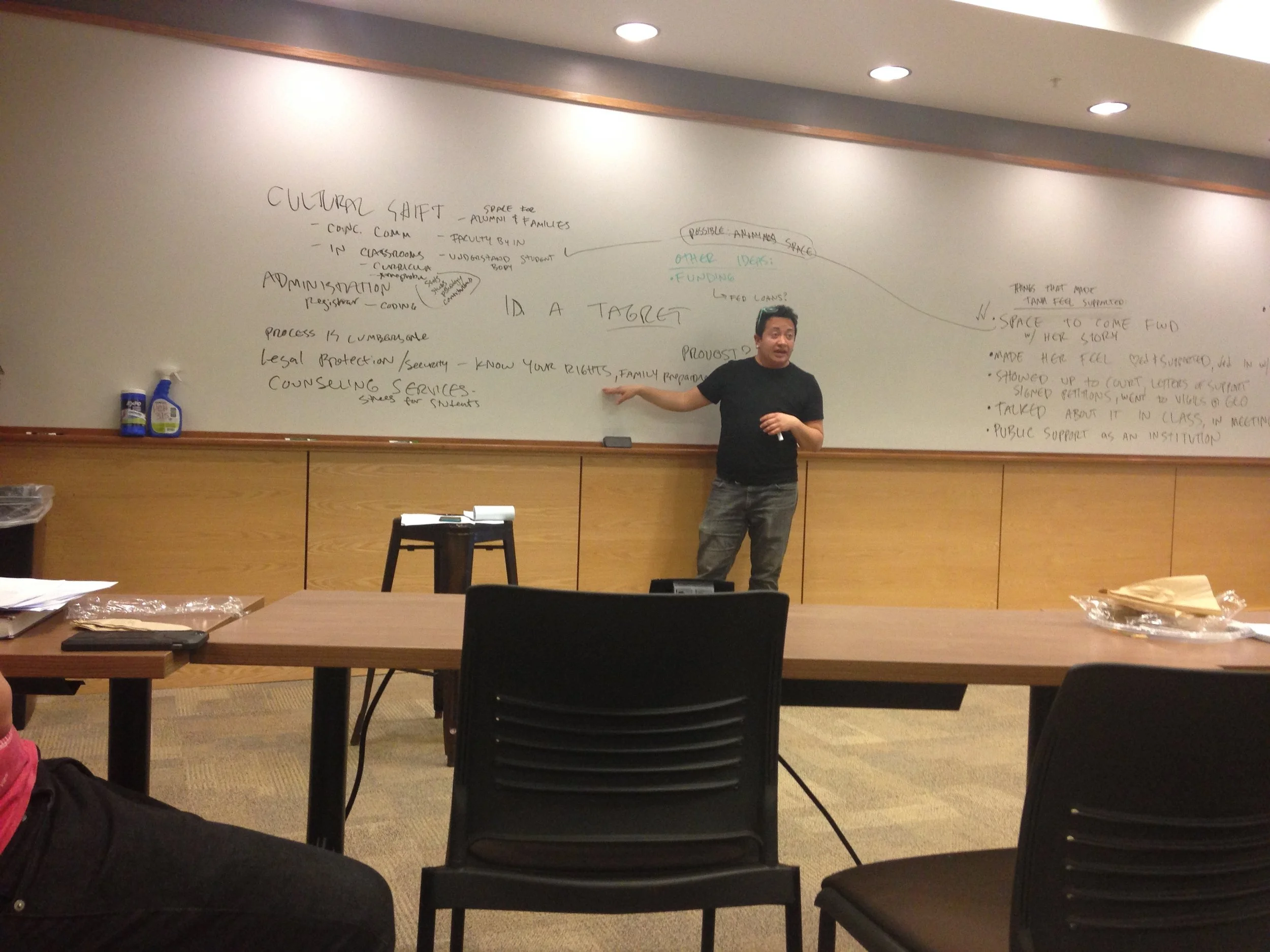
Holmquist and Sanders Lead Q & A Discussion on Syrian Conflict
On Tuesday, April 18th senior Allie Holmquist and history and politics professor Dr. Ethan Sanders hosted a Q & An entitled “The Syrian Conflict—A Civil War?” in the Regis Room of Carroll Hall.

A Conversation on Our Changing Community
Over fifty gathered to hear the reflections of five panelists made of up Berkeley-Regis neighborhood residents at "Our Chaning Community."

Berkeley Regis United Neighbors Hold March Meeting
On Tuesday, March 21, twenty community residents gathered at Holy Family Church for the monthly Berkeley Regis United Neighbors (BRUN) meeting.

Education on Immigration
On March 15 over thirty individuals from all across the Regis community gathered together in Claver 315 for the Spirituality and Social Justice Committee’s event “Education on Immigration: A Call to Action.”


Regis Continues Discussion on Mental Health
RUSGA and the Institute on the Common Good co-sponsored a follow-up event to last semester's "Taking Care of Our Friends, and Ourselves” in response to the mental health related tragedies that occurred on campus last semester.
